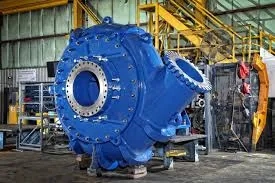TEL:
+86 13120555503
English
- Afrikaans
- Albanian
- Amharic
- Arabic
- Armenian
- Azerbaijani
- Basque
- Belarusian
- Bengali
- Bosnian
- Bulgarian
- Catalan
- Cebuano
- Corsican
- Croatian
- Czech
- Danish
- Dutch
- English
- Esperanto
- Estonian
- Finnish
- French
- Frisian
- Galician
- Georgian
- German
- Greek
- Gujarati
- Haitian Creole
- hausa
- hawaiian
- Hebrew
- Hindi
- Miao
- Hungarian
- Icelandic
- igbo
- Indonesian
- irish
- Italian
- Japanese
- Javanese
- Kannada
- kazakh
- Khmer
- Rwandese
- Korean
- Kurdish
- Kyrgyz
- Lao
- Latin
- Latvian
- Lithuanian
- Luxembourgish
- Macedonian
- Malgashi
- Malay
- Malayalam
- Maltese
- Maori
- Marathi
- Mongolian
- Myanmar
- Nepali
- Norwegian
- Norwegian
- Occitan
- Pashto
- Persian
- Polish
- Portuguese
- Punjabi
- Romanian
- Russian
- Samoan
- Scottish Gaelic
- Serbian
- Sesotho
- Shona
- Sindhi
- Sinhala
- Slovak
- Slovenian
- Somali
- Spanish
- Sundanese
- Swahili
- Swedish
- Tagalog
- Tajik
- Tamil
- Tatar
- Telugu
- Thai
- Turkish
- Turkmen
- Ukrainian
- Urdu
- Uighur
- Uzbek
- Vietnamese
- Welsh
- Bantu
- Yiddish
- Yoruba
- Zulu
Telephone: +86 13120555503
Email: frank@cypump.com
Feb . 13, 2025 12:55 Back to list
pipeline pump
Pipeline pumps are essential components in various industrial processes, ensuring the efficient transportation of liquids through a pipeline system. These pumps, designed for robustness and reliability, cater to a wide range of sectors including oil and gas, water treatment, chemical production, and more. Choosing the right pipeline pump is not only vital for operational efficiency but also impacts maintenance costs and lifespan.
Integrating smart pump technologies into pipeline systems further enhances operational efficiency and reliability. These include IoT-enabled sensors that provide real-time data monitoring, predictive maintenance alerts, and remote control capabilities. Such technologies empower operators to preemptively address potential issues, optimize performance, and adapt to changing operational conditions with ease. Authoritativeness in this domain also involves staying abreast of the latest technological advancements and regulatory requirements. Industry experts actively engage with research bodies and participate in forums to share insights and gather knowledge about emerging trends and standards. This engagement not only bolsters their understanding but also translates into better advice and solutions for their customers. Finally, real-world experience underscores the importance of customization in pipeline pump solutions. While off-the-shelf pumps are readily available, customized solutions tailor-fitted to specific operational needs often yield better results. Factors like pipeline layout, fluid characteristics, and operational environment play critical roles in dictating the specifications of the pump required. Collaborating closely with suppliers to design and test customized pumps ensures optimal performance and longevity. In conclusion, pipeline pumps are indispensable to various industrial processes, acting as the backbone of fluid transport systems. Selecting the right pump involves balancing expertise, experience, trust, and authority, alongside considerations for sustainability and innovation. By focusing on these aspects, industries can achieve efficient, reliable, and cost-effective pipeline operations.


Integrating smart pump technologies into pipeline systems further enhances operational efficiency and reliability. These include IoT-enabled sensors that provide real-time data monitoring, predictive maintenance alerts, and remote control capabilities. Such technologies empower operators to preemptively address potential issues, optimize performance, and adapt to changing operational conditions with ease. Authoritativeness in this domain also involves staying abreast of the latest technological advancements and regulatory requirements. Industry experts actively engage with research bodies and participate in forums to share insights and gather knowledge about emerging trends and standards. This engagement not only bolsters their understanding but also translates into better advice and solutions for their customers. Finally, real-world experience underscores the importance of customization in pipeline pump solutions. While off-the-shelf pumps are readily available, customized solutions tailor-fitted to specific operational needs often yield better results. Factors like pipeline layout, fluid characteristics, and operational environment play critical roles in dictating the specifications of the pump required. Collaborating closely with suppliers to design and test customized pumps ensures optimal performance and longevity. In conclusion, pipeline pumps are indispensable to various industrial processes, acting as the backbone of fluid transport systems. Selecting the right pump involves balancing expertise, experience, trust, and authority, alongside considerations for sustainability and innovation. By focusing on these aspects, industries can achieve efficient, reliable, and cost-effective pipeline operations.
Share
Next:
Latest news
-
ISG Series Vertical Pipeline Pump - Chi Yuan Pumps Co., LTD.|Advanced Hydraulic Design&Energy-Efficient Solutions
NewsJul.30,2025
-
ISG Series Vertical Pipeline Pump - Chi Yuan Pumps Co., LTD.
NewsJul.30,2025
-
ISG Series Vertical Pipeline Pump - Chi Yuan Pumps Co., LTD.|energy-efficient fluid handling&industrial durability
NewsJul.30,2025
-
ISG Series Vertical Pipeline Pump - Chi Yuan Pumps | Advanced Engineering&Industrial Efficiency
NewsJul.30,2025
-
ISG Series Pipeline Pump - Chi Yuan Pumps | High Efficiency, Energy Saving
NewsJul.30,2025
-
ISG Series Vertical Pipeline Pump-Chi Yuan Pumps|High Efficiency&Reliable Performance
NewsJul.29,2025










